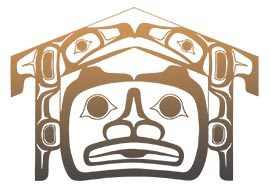The collections currently comprise approximately 12,000 items including about 6,000 books, 450 videos, 5,000 vertical file materials, curriculum resources, journals and newspapers, maps, posters, theses and dissertations, the G.A. (Bud) Mintz special collection, and some archival materials. The collections focus on First Nations in British Columbia, including contextual materials on Canadian First Nations, in addition to issues of national and international interest to First Nations and Indigenous peoples. X̱wi7x̱wa collects materials written from First Nations perspectives, such as materials produced by First Nations, First Nations organizations, tribal councils, schools, publishers, researchers, writers and scholars.
Featured collections
Xwi7xwa Library Spotlight: Online Resources
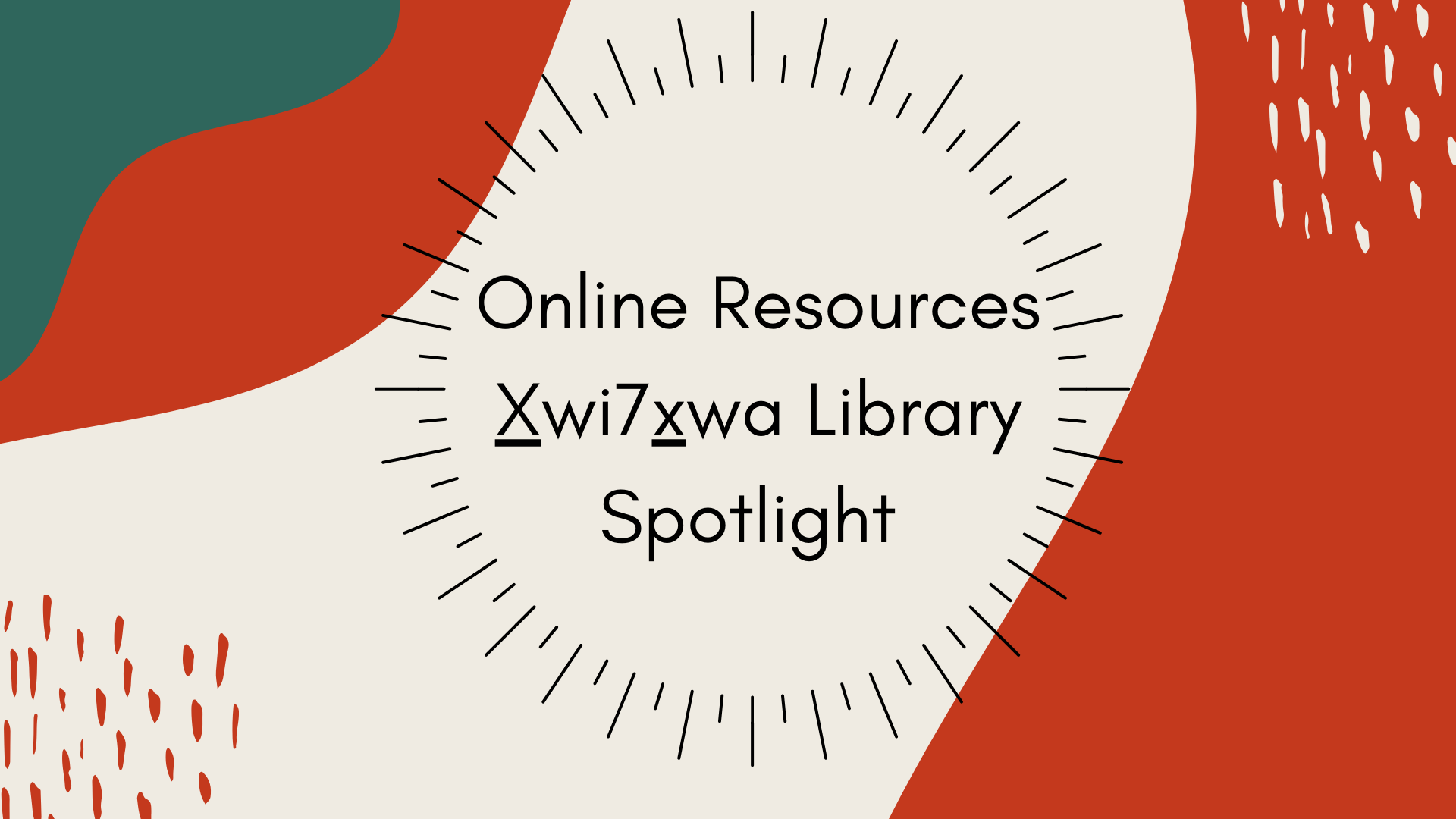
Did you know that UBC Library has thousands of full online copies of their most popular books? At Xwi7xwa, we have some of the most popular/circulating materials available online for students & faculty to access, as well as streaming videos through McIntyre Media.
If you need help finding resources or alternative resources to a print materials you can’t access right now, please email us at xwi7xwa.library@ubc.ca and a librarian will email you back with some options!
How to Find Online Materials through the catalog:
Option 1:
Through this link to the UBC Library catalogue, you can search specifically for materials that are available online. The image below is where the link will take you.
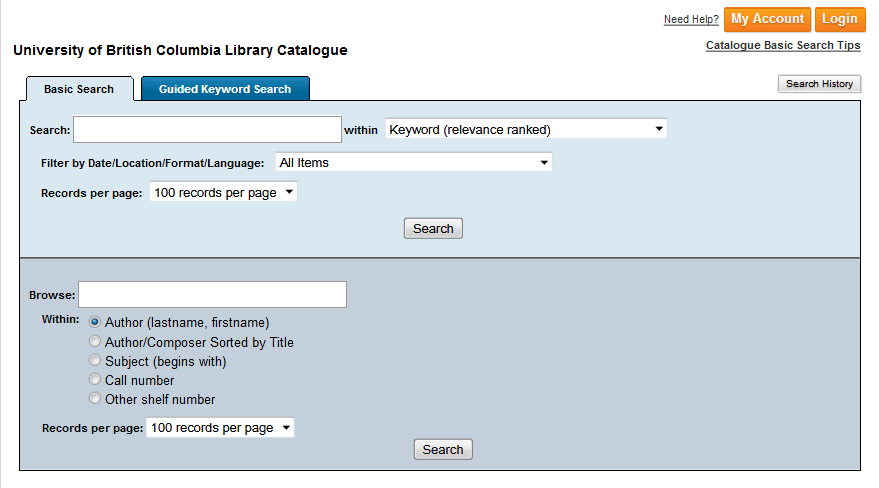
Under the “Filter by Date/Location/Format/Language,” select “Location: Online” to view items that will be available in their full format online. You can type in a specific title, keywords, authors, or subjects and see what comes up.
Option 2:
A way to view if a specific material that the Library owns in print is also available online by clicking on the title in the item record.
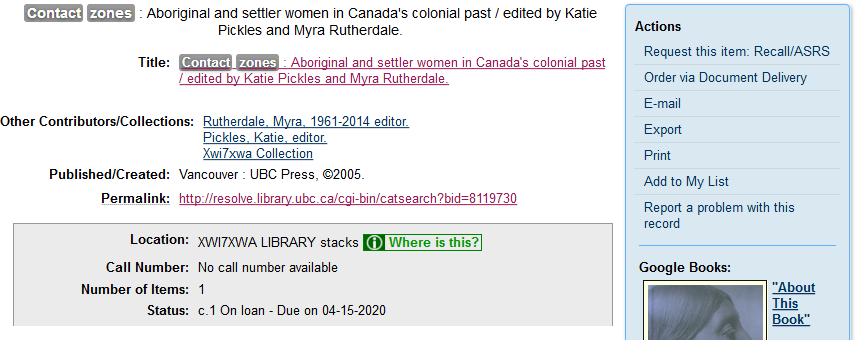
In the above example, you can see the title is printed twice. Click on the second title listed; this one is a clickable link.
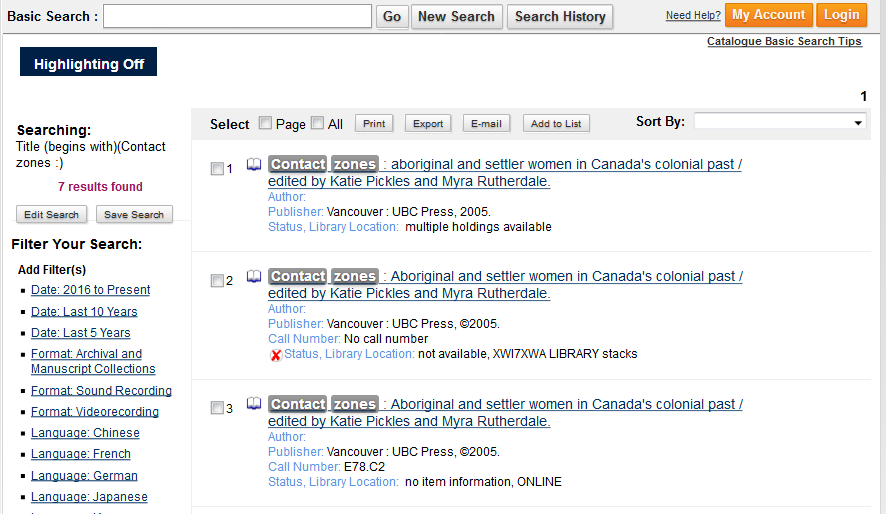
Clicking on the title will lead you to a page much like the one above. There are three types of records: a record of the book at Xwi7xwa, at other UBC library locations, and the copy available online. Click on the option that says “Status, Library Location: ONLINE”
Either option will lead you to a page like the example in the below image:
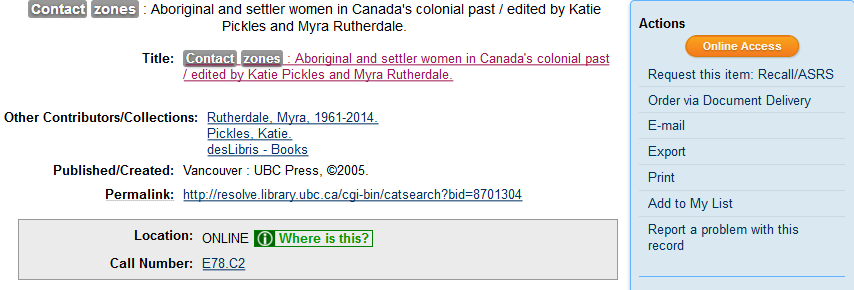
Once here, select the orange “Online Access” button on the right side of the screen. This will take you to the online ebook.
Helpful Hints for Keyword Searches through Summon
- Use quotation marks to search for a phrase.
- Example: “First Nations”
- Use a question mark to truncate a term to search for words with the same stem.
- Example: Aborig? retrieves Aboriginal, Aboriginals, Aborigine, etc.
- Use “AND” in searches will allow you to limit your results even farther.
- example: “first nations” AND “residential schools” will only show you results with both those phrases in them. This works for more than just two as well
- Use “OR” to find phrases that could be interchangeable to make the search wider
- example: “first nations” OR “indigenous” OR “aboriginal”
- Combine “AND” and “OR”
- example: “first nations” OR “indigenous” OR “aboriginal” AND “residential schools”
How to Find Streaming Videos:
Option 1:
UBC Library uses a platform called McIntyre Media to stream videos we’ve subscribed to.
- Search the phrase “Mcintyre media” in simple search and filter the results to Online OR click this link.
- Select any of the titles on the list to see their record.
- Under Actions on the right hand side click Online to gain access to 165 titles
Check out this post from Xwi7xwa last year for some video recommendations.
Option 2:
Head onto the simple search of the catalogue and the page below will pop up

Under “Filter by Date/Location/Format/Language,”select “Location: ONLINE'” and put in your search term(s).
Once you are taken to your search results, you will want to add an additional filter from the left side column.

Add the filter “Format: Videorecording” to be able to view online videos. Some of these will be from McIntyre Media, but some will not. It depends on what search terms were used.
Option 3:
UBC Library has a research guide all about online film and media that you can access.
Looking for non-academic films to take your mind off your coursework? Check out this database UBC has access to until April 20th!
Featured Online Books & Resources:
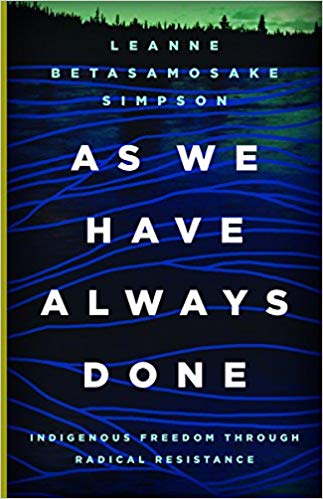
As We Have Always Done: Indigenous Freedom Through Radical Resistance by Leanne Betasamosake Simpson (also available online) gives the reader many of the ways that Indigenous resistance has stopped natural resource extraction. From tar sands to pipelines, Indigenous resistance has pushed against colonization and the dispossession of land. This book not only examines the relationship between Indigenous peoples and natural resources, but ways to push back against settler-colonialism as a whole.
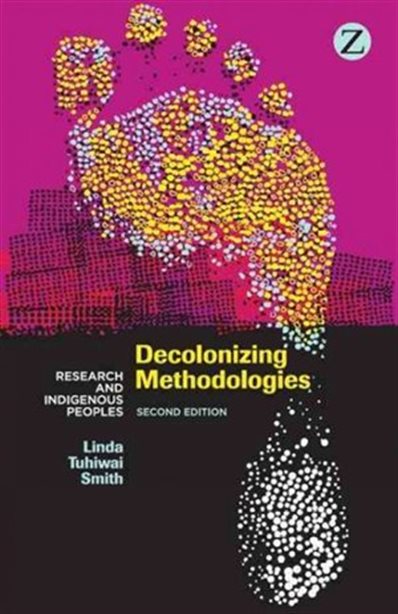
Decolonizing Methodologies: Research and Indigenous Peoples by Linda Tuhiwai Smith explores the ways in which imperils is embedded in the disciplines of knowledge, and argues that the decolonization of research methods will help reclaim control over indigenous ways of knowing and being.
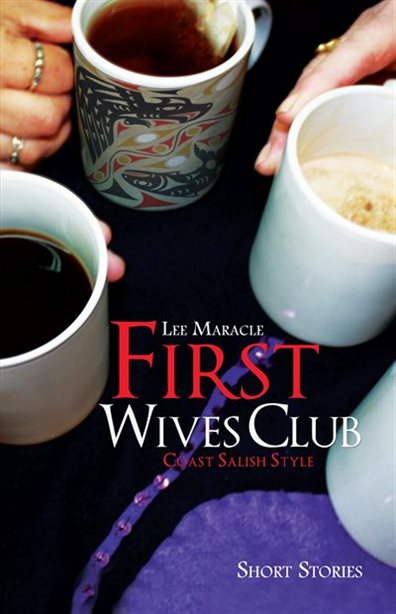
First Wives Club: Coast Salish Style by Lee Maracle is a collection of short stories provides revealing glimpses into the life experiences of an Aboriginal woman, a university professor, an activist and a single mother in the lower mainland of B.C.

Everything You Wanted to Know About Indians But Were Afraid to Ask by Anton Treuer uses matter-of-fact responses to over 120 questions, both thoughtful and outrageous, modern and historical, Ojibwe scholar and cultural preservationist Anton Treuer gives a frank, funny, and sometimes personal tour of “what’s up with Indians, anyway?”
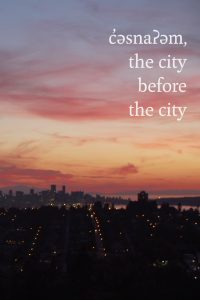
C̓äsna7äm, The City Before The City directed and produced by Elle-Máijá Tailfeathers (also available online) looks at the story of the land UBC and Vancouver sits on before it became Vancouver and UBC. This documentary specifically looks at the 200 day vigil the Musqueam people to halt a condo development that unearthed ancestral remains.
Need more help finding resources? Email us at xwi7xwa.library@ubc.ca!
Graphic Novels Spotlight
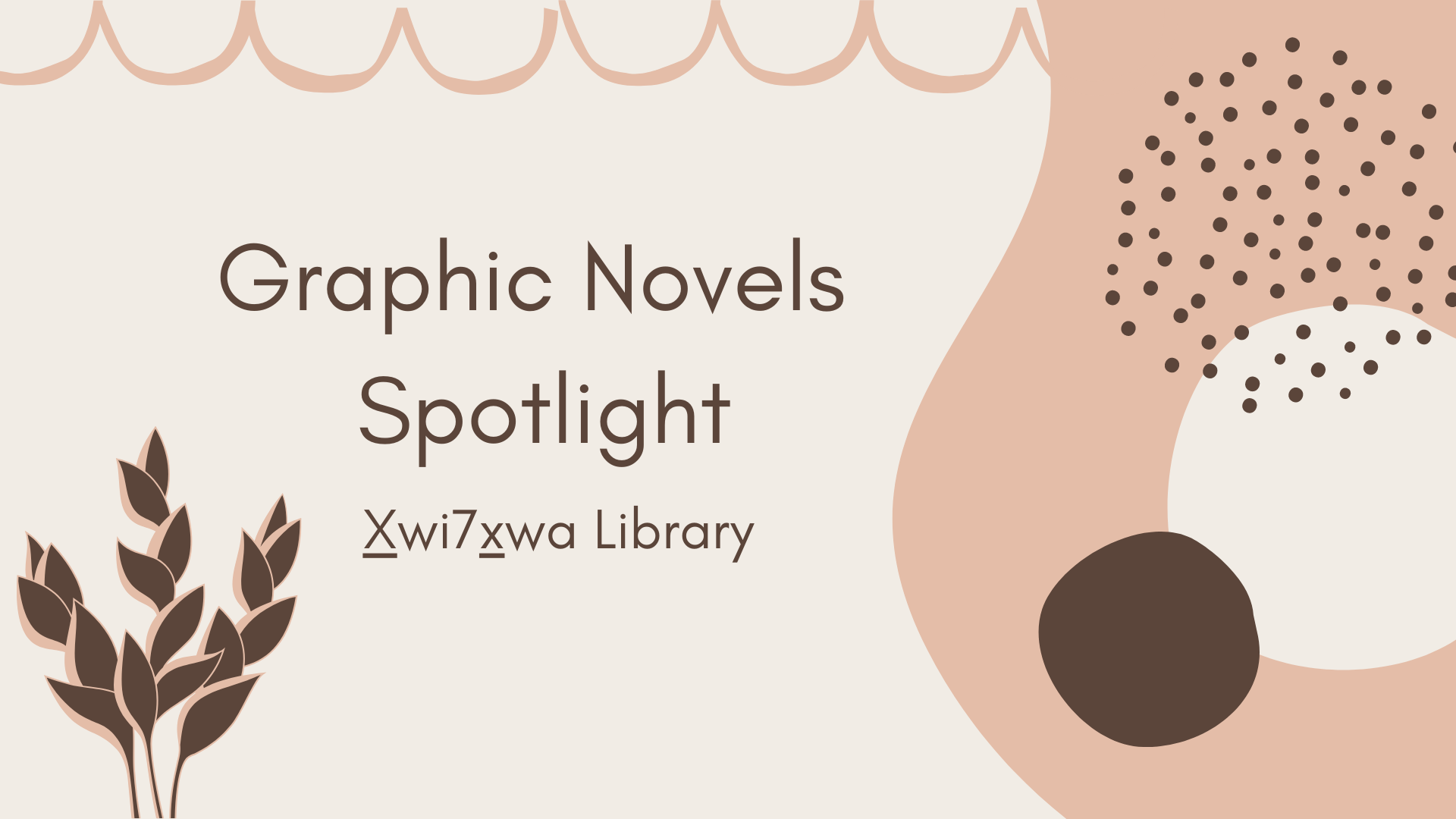
Did you know we have a great graphic novel section at the library? Located on top of our vertical files, right next to our french language collection! Being able to see words and images on the page at the same time allows graphic novels to communicate emotions to readers that words alone might not. Continue reading “Graphic Novels Spotlight”
March 8th is International Women’s Day
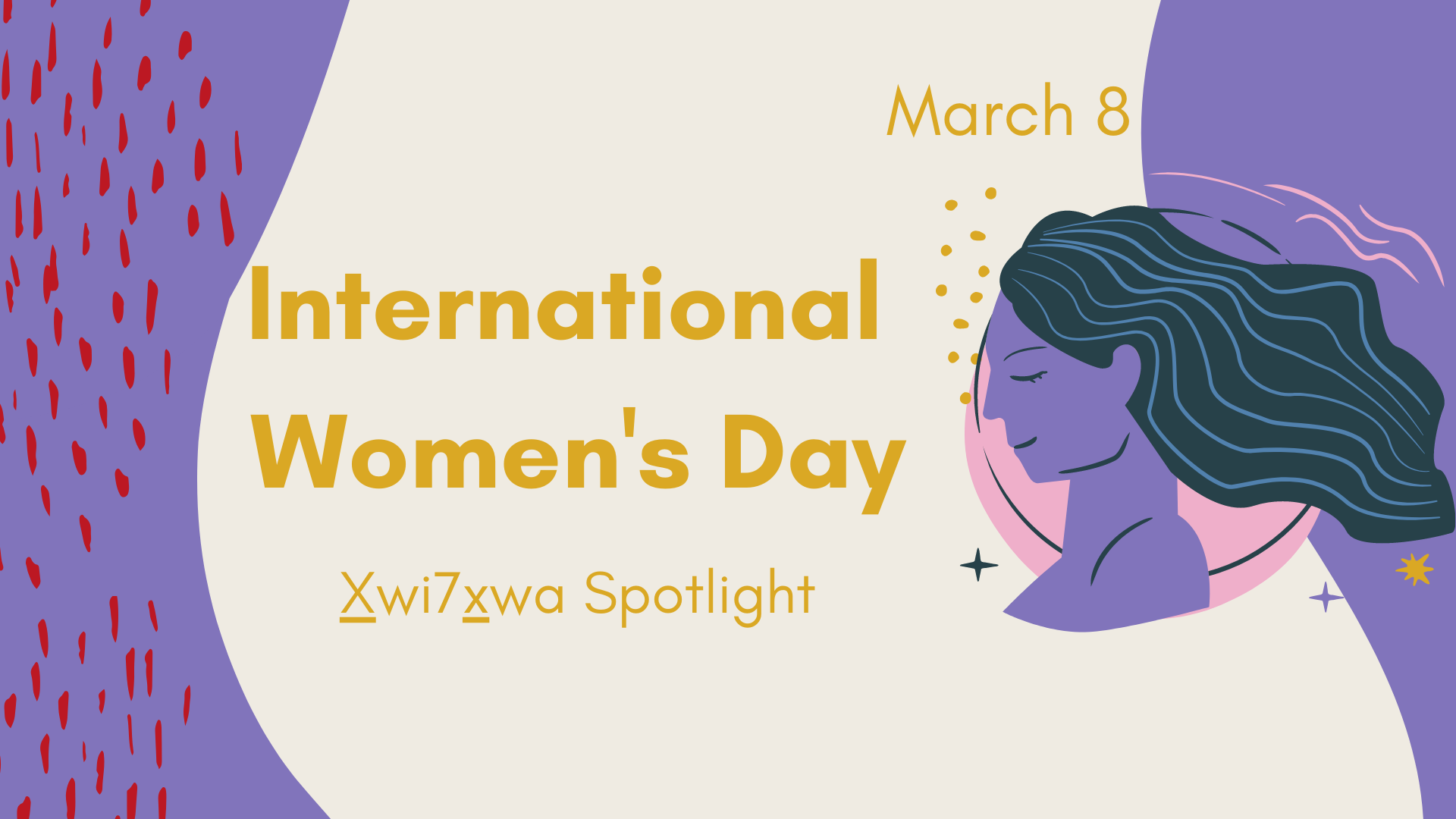 March 8th is International Women’s Day across the globe! It is to celebrate the social, economic, cultural and political achievements of all women, past, present, & future. It is also used as a day to signify a call to action for accelerating women’s equality in society.
March 8th is International Women’s Day across the globe! It is to celebrate the social, economic, cultural and political achievements of all women, past, present, & future. It is also used as a day to signify a call to action for accelerating women’s equality in society.
The theme for this year is Each for Equal, explained as:
An equal world is an enabled world.
Individually, we’re all responsible for our own thoughts and actions – all day, every day.
We can actively choose to challenge stereotypes, fight bias, broaden perceptions, improve situations and celebrate women’s achievements.
Collectively, each one of us can help create a gender equal world.
Let’s all be #EachforEqual.
(International Women’s Day Theme, 2020)
You might see some social media activity with the hashtags #IWD2020 and #EachforEqual, which are the official hashtags by the International Women’s Day organization.
Here at Xwi7xwa, we’ve picked out some of our favourite books surrounding women, feminism, and womanhood.
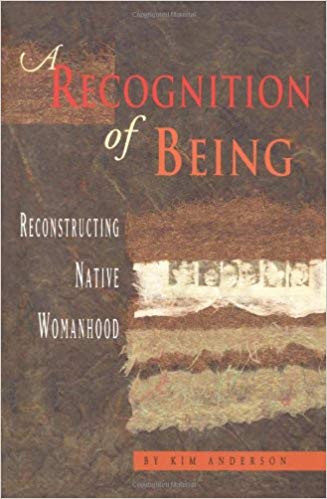
A Recognition of Being: Reconstructing Native Womanhood by Kim Anderson explores how Indigenous womanhood had been constructed and reconstructed in Canada, and examines how important the ability to self-determine yourself is in a colonial society.
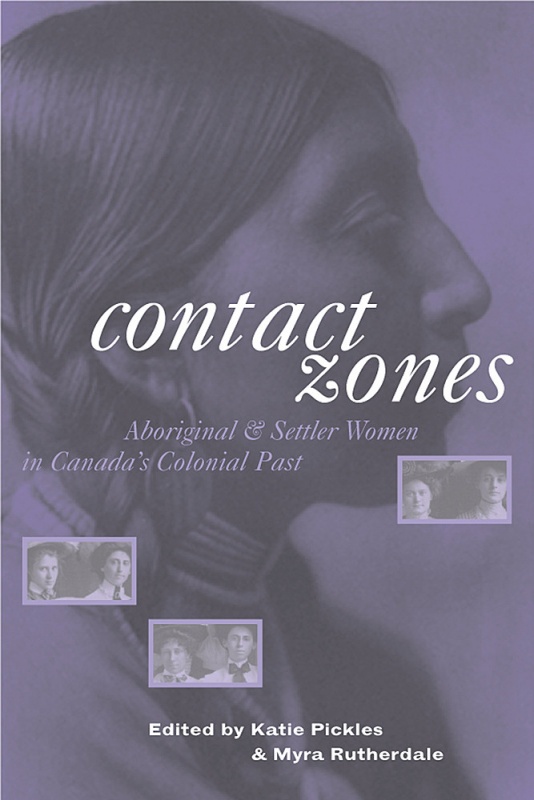
Contact Zones: Aboriginal and Settler Women in Canada’s Colonial Past edited by Katie Pickles and Myra Rutherdale places women as both colonizer and colonized (sometimes even simultaneously), to demonstrate that women were uniquely positioned at the axis of the colonial encounter. Contact Zones puts Canadian women’s history within colonial and imperial systems.
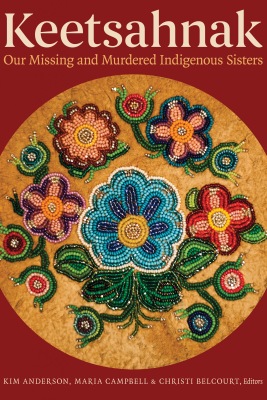
Keetsahnak: Our Missing and Murdered Indigenous Sisters edited by Kim Anderson, Maria Campbell & Christi Belcourt the tension between personal, political, and public action is brought home starkly as the contributors look at the roots of violence and how it diminishes life for all.
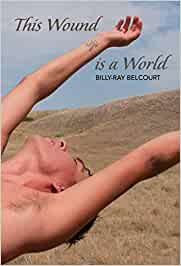
This Wound is a World: poems by Billy-Ray Belcourt issues a call to turn to love and sex to understand how Indigenous peoples shoulder sadness and pain like theirs without giving up on the future.
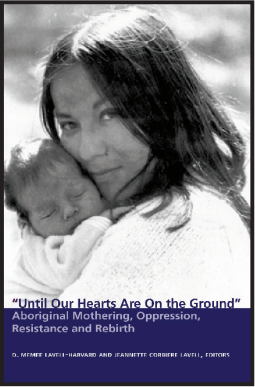
“Until Our Hearts Are On the Ground”: Aboriginal Mothering, Oppression, Resistance and Rebirth edited by D. Memee Lavell-Harvard and Jeannette Corbiere Lavell is a collection of multiple voices demonstrating the issues surrounding Indigenous motherhood in contemporary society and the effects it has on mothering practices, government policies, and the way mothers are represented in the media.
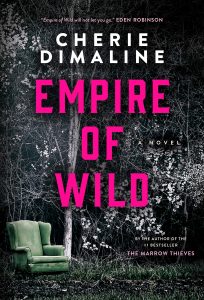
Empire of Wild by Cherie Dimaline follows Joan through a propulsive, stunning and sensuous novel inspired by the traditional Métis story of the Rogarou – a werewolf-like creature that haunts the roads and woods of Métis communities.
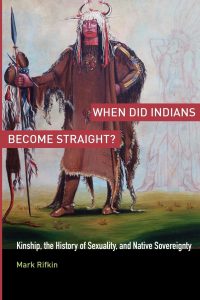
When Did Indians Become Straight?: Kinship, the History of Sexuality, and Native Sovereignty by Mark Rifkin examines the relationships between colonialism through U.S government policy & history and Indigenous peoples sexuality/sexual order of society.
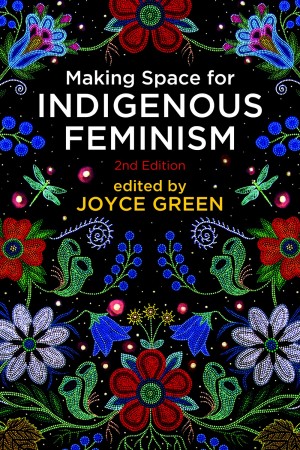
Making Space for Indigenous Feminism edited by Joyce Green covers a wide range of some of the most important issues facing Indigenous peoples today: violence against women, recovery of Indigenous self-determination, racism, misogyny and decolonization in a global context.
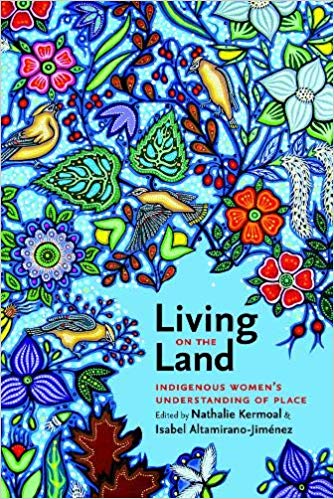
Living on the Land: Indigenous Women’s Understanding of Place edited by Nathalie Kermoal and Isabel Altamirano-Jiménez looks at how patriarchy, gender, and colonialism shape the experiences of Indigenous women as both knowledge holders and knowledge producers. Different writers explore the nature and scope of Indigenous women’s knowledge, how knowledge is rootedness in relationships both human and spiritual, and how knowledge is not inseparable from land and landscape.
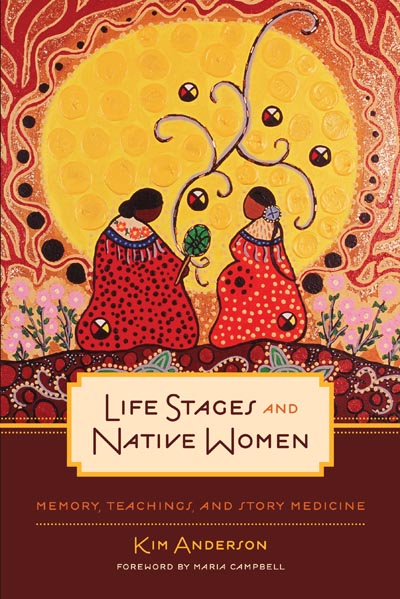
Life Stages and Native Women: Memory, Teachings, and Story Medicine by Kim Anderson shares the teachings of fourteen elders from the Canadian prairies and Ontario to illustrate how different life stages were experienced by Métis, Cree, and Anishinaabe girls and women during the mid-twentieth century.
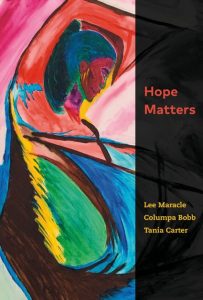
Hope Matters by Lee Maracle, Columpa Bobb, & Tania Carter is a collection of poetry written together as mothers & daughters that focuses on Indigenous history from colonial beginnings to reconciliation.
Looking for something else to read on International Women’s Day? Stop in to catch with our librarians or email us at xwi7xwa.library@ubc.ca!
Black History Month at Xwi7xwa Library
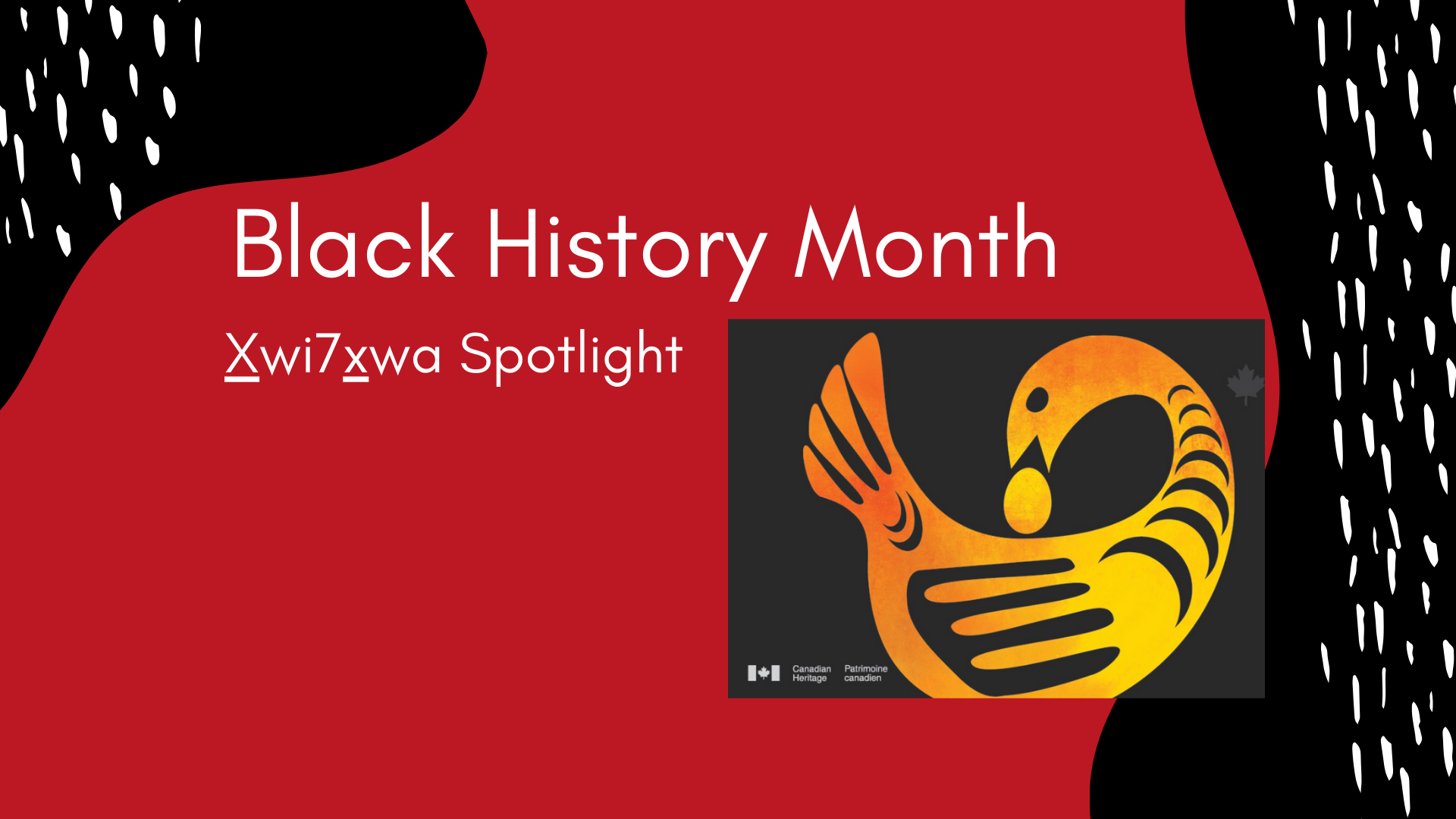
February is Black History Month in Canada, the US, the UK, Germany, and the Netherlands. During this month, we recognize the legacy, achievements, and struggles that Black People have faced and accomplished. The bird in the above picture is the Sankofa bird, with it’s feet forward, head turned backward, it reflects on the past to build a successful future, and is the symbol of Black History Month in Canada this year. We have chosen books and other materials from our collection to celebrate this month with the rest of Canada. Be sure to check out our display in the branch! And remember, we are open normal hours during Reading Week if you are still around campus.

Crossing Waters, Crossing Worlds: the African Diaspora in Indian Country edited by Tiya Miles and Sharon P. Holland looks at historical studies and cultural expressions between blacks and Indigenous in Native communities to illustrates the many forms of expression that has formed through their intertwined history.
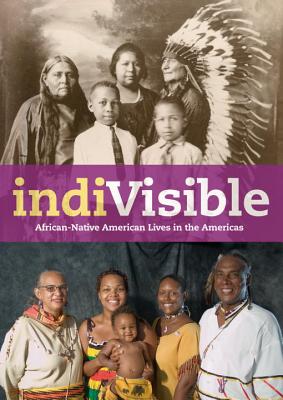
IndiVisible : African-Native American Lives in the Americas edited by Gabrielle Tayac is a collection of 27 essays that work to provide multiple viewpoints of the complex personal histories of people with dual heritage, trying to find acceptance within their own communities.

Proudly Red and Black : Stories of African and Native Americans by William Loren Katz and Paula A. Franklin, written for younger readers, is an in-depth look of six people who have both African and Indigenous heritage, including a US senator, a scuplter, and a colonial trader.
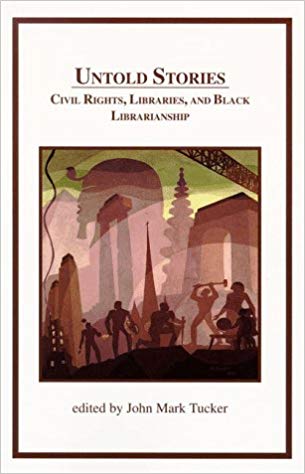
Untold Stories: Civil Rights, Libraries, and Black Librarianship edited by John Mark Tucker is composed of 15 articles that fall under three themes: Legacies of Black Librarianship, Chronicles from the Civil Rights Movement, & Resources for Library Personnel, Services and Collections.
American Red & Black: Stories of Afro-Native Identity directed by Alicia Woods is an award winning intimate look at 6 Afro-native Americans from across the U.S as their reflect on their experience as a part of two different communities of colour.
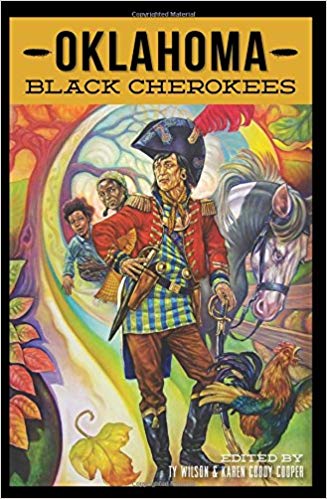
Oklahoma: Black Cherokees edited by Ty Wilson & Karen Coody Cooper looks at the ways the Cherokee assimilated into American society during the 1800s including accommodating the institutional slavery of black people and how this decision still impacts people today.
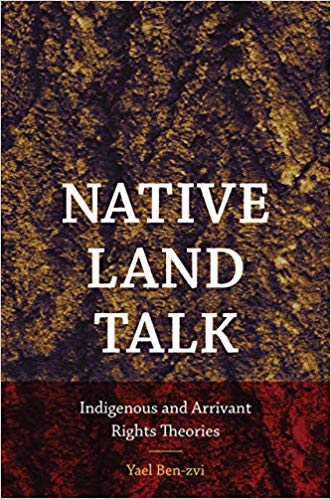
Native Land Talk: Indigenous and Arrivant Rights Theories by Yael Ben-Zvi draws on different types of texts to illustrate the ways that Indigenous and African-descended slaves explained their own views of freedom in the 18th and 19th century, and how their views drew off of the ways settlers threw off British rule in the American Colonies. This books makes the case for how rights were constructed differently depending on if it existed in American, African, or English space, and explains the historical obstacles to solidarity between Indigenous and African American struggles.
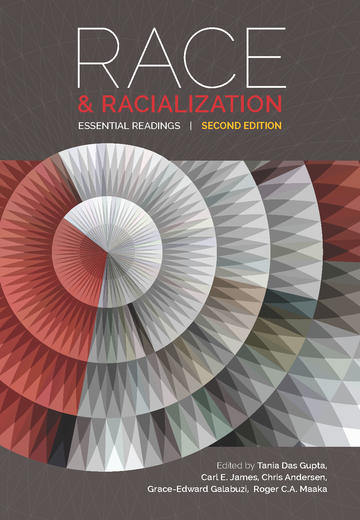
Race and Racialization: Essential Readings edited by Tania Das Gupta, Carl E. James, Chris Andersen, Grace-Edward Galabuzi, and Roger C.A. Maaka draws a number of academic thinkers and writers to explore the themes of ethnocentrism, cultural genocide, conquest and colonization, disease and pandemics, slavery, the social construction of racism, and the failures of integration in short essays.
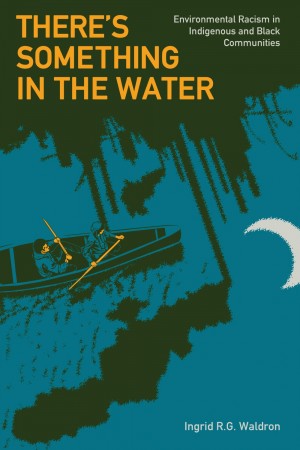
There’s Something in the Water: Environmental Racism in Indigenous and Black Communities by Ingrid R.G. Waldron examines the legacy that environmental racism has in Indigenous and Black communities in Canada, focusing primarily on Nova Scotia, and uses settler colonialism as the overarching theory to explain how environmental racism works as erasure in white-settler society.
American Cowboys written, produced and directed by Cedric Wildbill and Tania Wildbill shows the legacy of Indigenous and Black cowboys in the American West dating back to the 1900s where the cowboy winners broke the colour barrier in rodeo. This documentary includes a 1911 silent film!

Racism and Anti-Racism in Canada edited by David Este, Liza Lorenzetti, & Christa Sato is a introductory reader that illustrates the many ways that racism and discrimination has impacted Canadian society, with writers from diverse backgrounds that reflect the people making up Canadian society.

Rumble: the Indians Who Rocked the World directed by Catherine Bainbridge is a library favourite that focuses on the Indigenous and Afro-Indigenous people who shaped music to where it is today.
Valentine’s Day at Xwi7xwa
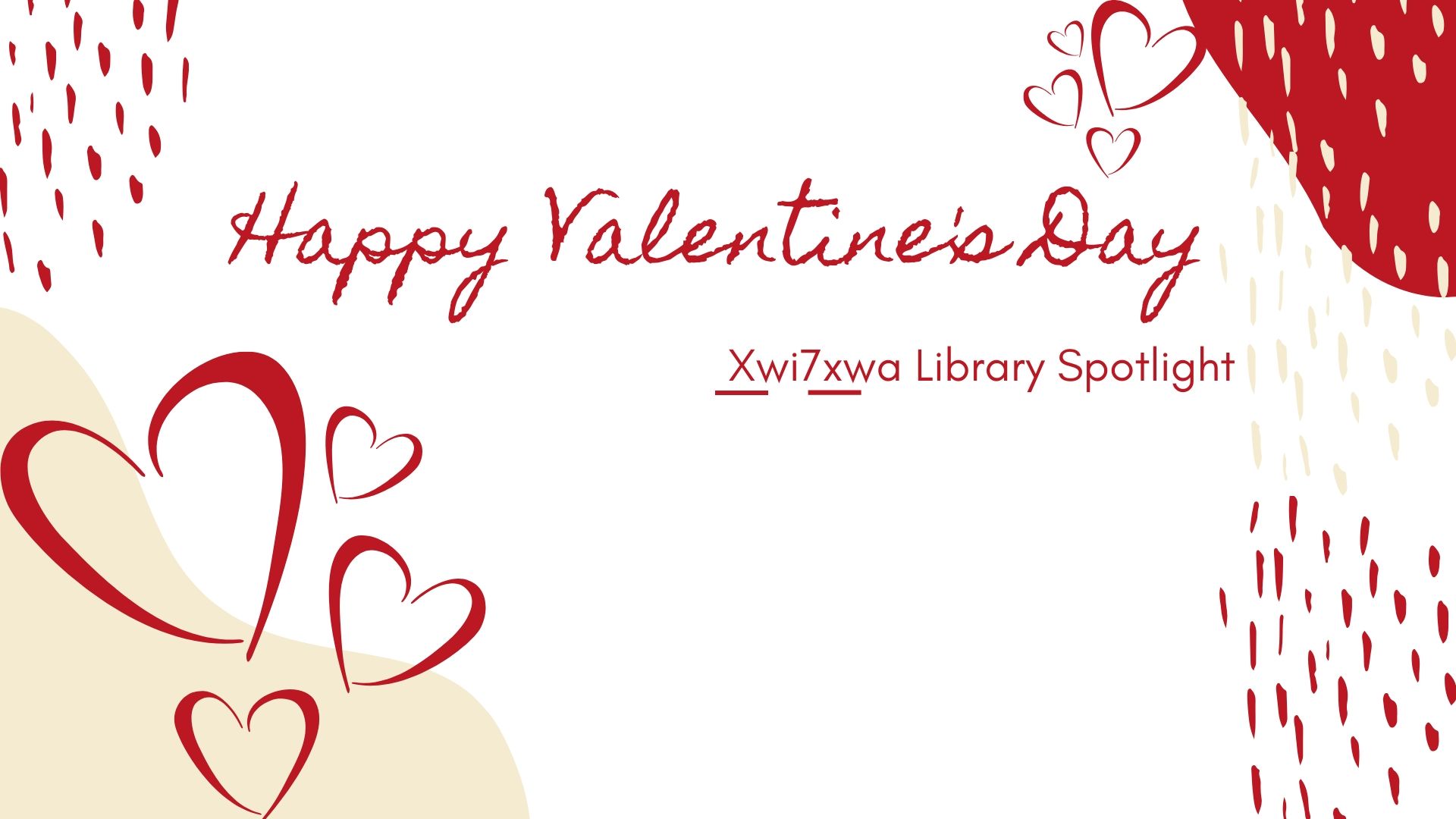 Happy Valentine’s Day from your librarians at Xwi7xwa! We have rounded up some fun reads surrounding topics of love, care, and romance. Have you checked our our fiction section or poetry section yet? We have lots of choices for you when you want to take a step back from academic texts. Come in to the library and ask one of our librarians for some of their favourites!
Happy Valentine’s Day from your librarians at Xwi7xwa! We have rounded up some fun reads surrounding topics of love, care, and romance. Have you checked our our fiction section or poetry section yet? We have lots of choices for you when you want to take a step back from academic texts. Come in to the library and ask one of our librarians for some of their favourites!
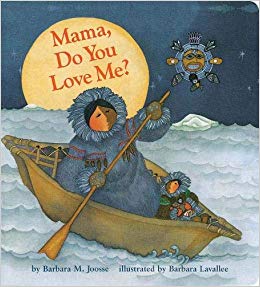
Mama, Do You Love Me? by Barbara M. Joosse; illustrated by Barbara Lavallee is a children’s book where the mother explains just how unconditional her love is for her child. This book features great depictions of Arctic animals and Inuit life.
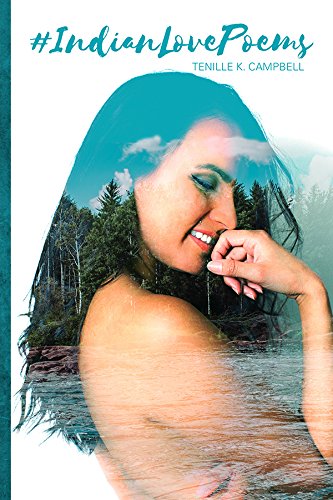
#IndianLovePoems: Poems by Tenille K. Campbell dives into stories of love and lust from all across Canada, illustrating the depth of emotions that come when sex, culture, and race is mixed with love, lust, and relationships.
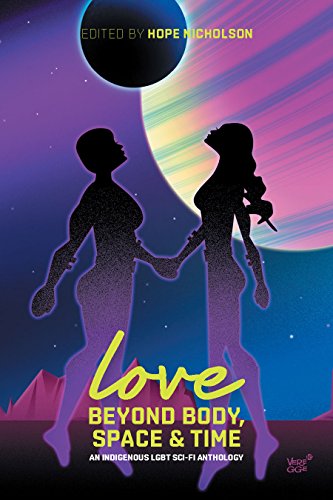
Love Beyond Body, Space, and Time : An Indigenous LGBT Sci-Fi Anthology edited by Hope Nicholson is a collection of science fiction and urban fantasy stories starring First Nation and Métis folks.
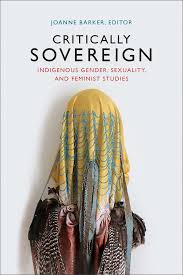
Critically sovereign: Indigenous Gender, Sexuality, and Feminist Studies edited by Joanne Barker traces the ways that gender is intrinsically tied to Indigenous politics and colonialism.
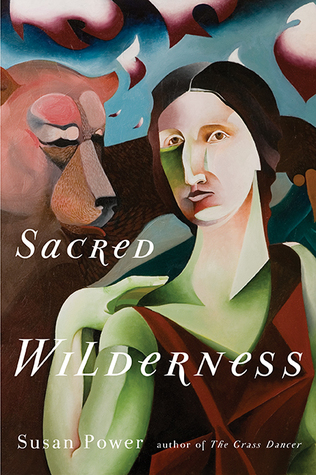
Sacred Wilderness by Susan Power follows the lives of four women that are clan mothers from different time periods and different backgrounds that risk their hearts and lives for love of family, relationships, and life.
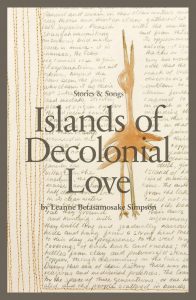
Islands of Decolonial Love: Stories & Songs by Leanne Simpson writes short stories of Indigenous Peoples and Communities learning to live loving and observant lives where at the same time struggling to survive the historical and ongoing injustices of colonialism.
I Love My Skin by Terry Haines is a film on how First Nation children learn to love and accept themselves in a society that can make them feel less than.
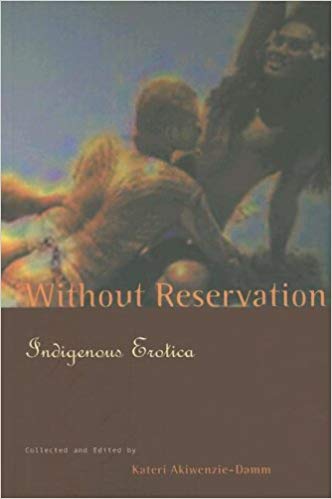
Without Reservation: Indigenous Erotica collected and edited by Kateri Akiwenzie-Damm is an anthology of poetry and prose by Indigenous writers from Canada, New Zealand, America, and Australia including well known authors like Maria Campbell and Sherman Alexie.
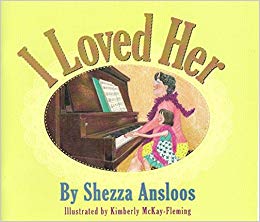
I Loved Her by Shezza Ansloos; illustrations by Kimberly McKay-Fleming is a children’s book of a young girl reflecting on the love and friendship she has with her grandmother.
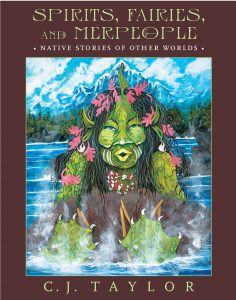
Spirits, Fairies, and Merpeople: Native Stories of Other Worlds by C.J. Taylor are tales of enduring love and the struggles of life told through tales written for all ages.
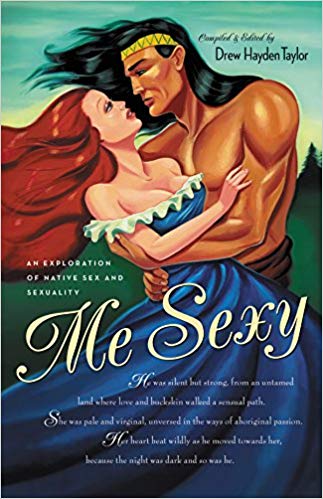
Me Sexy: an Exploration of Native Sex and Sexuality compiled & edited by Drew Hayden Taylor is a book filled with humorous essays was complied to show a fun and sexy side, because so much of fiction that features Indigenous Peoples end up focusing on aspects of kidnapping, rape, and assault.
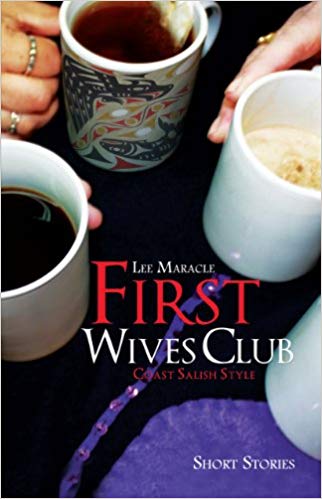
First Wives Club: Coast Salish Style by Lee Maracle (available online) are short stories that offers a glimpse into the love life of a university professor, a single mom, and an activist that are tied together through their Coast Salish background.
